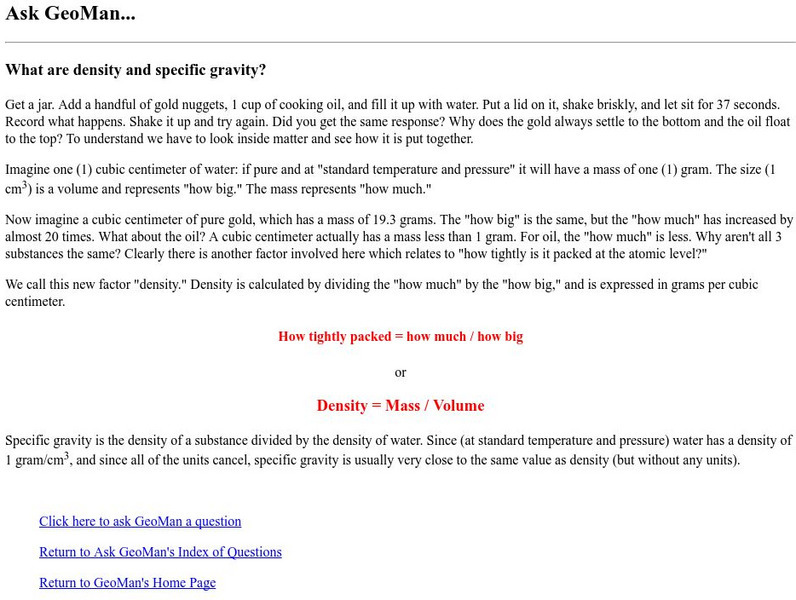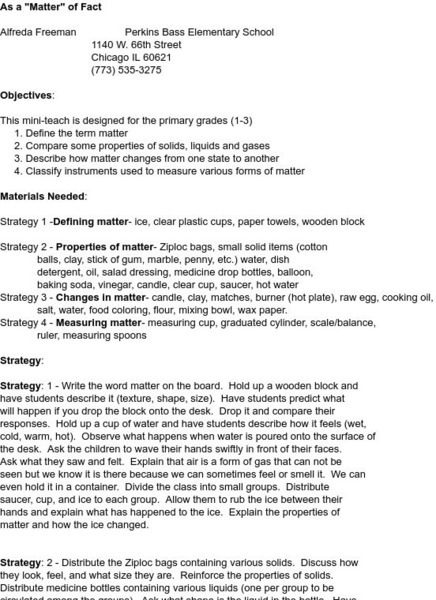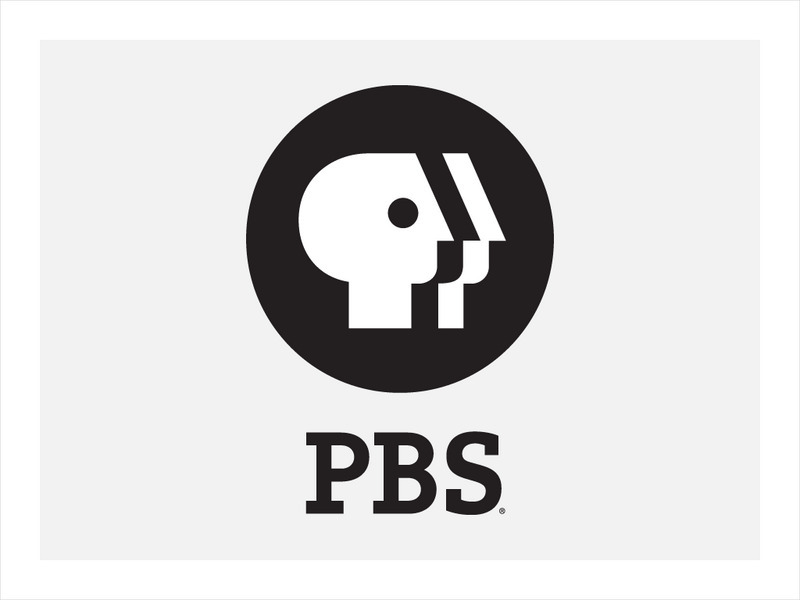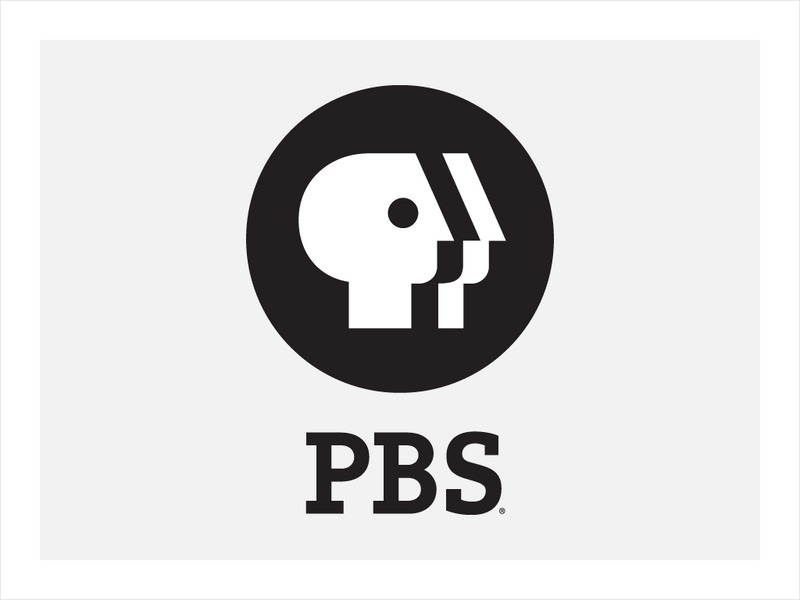CK-12 Foundation
Ck 12: Atoms to Molecules
[Free Registration/Login may be required to access all resource tools.] Examine the composition of matter.
CK-12 Foundation
Ck 12: Fifth Grade Science: Physical Science: Types of Matter
[Free Registration/Login may be required to access all resource tools.] Discusses elements, atoms, compounds, molecules, and crystals. Looks at mixture and different types of them.
CK-12 Foundation
Ck 12: Fifth Grade Science: Physical Science: Matter, Mass, and Volume
This learning module discusses the definition of matter and what mass and volume measure. Module includes pictures, videos, and review questions.
Utah Education Network
Uen: Floating and Sinking Potatoes
After the teacher puts pieces of potatoes in water and salt water, the students predict what is going to happen and try to name what makes this happen.
Alabama Learning Exchange
Alex: How Sweet It Is
As part of the study of Matter, the students will determine the density of standard percent sugar solutions through hands on experimentation. In laboratory groups, students will graph a standardized curve of the experimental data. The...
Alabama Learning Exchange
Alex: What's the Matter: Concentration Game
What's the Matter? is a guided inquiry lesson plan on classification of matter, physical and chemical properties, and physical and chemical changes. There are two parts to this lesson plan: (a) concentration game for definitions and (b)...
Alabama Learning Exchange
Alex: Translucent, Transparent, and Opaque Objects
Students will become familiar with transparent, translucent, and opaque objects. Students predict whether items are transparent, translucent, or opaque. Finally, students will show what they have learned by producing a song, poem, cheer,...
Alabama Learning Exchange
Alex: Matter
During this lesson plan, students explore matter through a hands-on investigation. By participating in an experiment and navigating the Internet, students learn to identify the properties of matter.
Alabama Learning Exchange
Alex: Bubble Bubble
This lesson will help young students understand the shape and movement of bubbles. Students will predict, practice, and record results as they blow bubbles with different-shaped objects.
PBS
Pbs Learning Media: The Ruff Ruffman Show: Rainbow Popsicle
Explore kitchen chemistry and make a cool rainbow popsicle.
PBS
Pbs Learning Media: The Ruff Ruffman Show: Ruff's Cookie Creator
Use science inquiry to explore and test different ingredients to help Ruff make, decorate, and serve cookies to his family in this kitchen science game.
PBS
Pbs Learning Media: The Ruff Ruffman Show: Teacher's Guide: Kitchen Chemistry
Learn about kitchen chemistry alongside Ruff Ruffman. Students can use the videos, games, and activities from The Ruff Ruffman Show to discover how by investigating solids and liquids and exploring heating and cooling, science can help...
Utah STEM Foundation
Utah Stem Action Center: What's Up With Our Air?
Learners will use modeling to understand inversions. Their models will evolve as they gather more information.
Utah STEM Foundation
Utah Stem Action Center: Marie Curie and Chemistry
Lesson teaches about Marie Curie and Chemistry. Lab activities include making slime, elephant toothpaste, and snow, and also a balloon rise.
University of Texas at Austin
The University of Texas Mc Donald Observatory: Properties of Dust
Young scholars carry out a scientific investigation of dust in their classroom, then extend their experience to properties of dust in space.
PBS
Pbs Learning Media: Density Lab
Use water displacement and a mass balance to determine the density of various objects in this interactive simulation.
Birmingham Museums Trust (UK)
Birmingham Museum & Art Gallery: Material Matters Quiz
Pick the right material for the images shown then learn the origin of that material.
University of Oregon
The University of Oregon: Specific Gravity
Specific gravity and density are defined and explained.
Science and Mathematics Initiative for Learning Enhancement (SMILE)
Smile: As a "Matter" of Fact
In this lesson plan site, students will define matter and compare properties of solids, liquids and gases.
PBS
Pbs Teachers: Water Density
Demonstrate the effect that dissolving different amounts of salt in water has on the density of the liquid.
PBS
Pbs Teachers: Bottle Fountain Experiment
Demonstrate how heating expands air molecules by constructing a bottle fountain powered by air pressure.
PBS
Pbs Teachers: Floating Paper Clips Experiment
Explore surface tension in water by making a paper clip float.
PBS
Pbs Teachers: Soap Powered Boat Experiment
Examine surface tension by floating an index card that has been cut into a boat shape on water, then dropping liquid soap near the "engine" section of the index card.
















